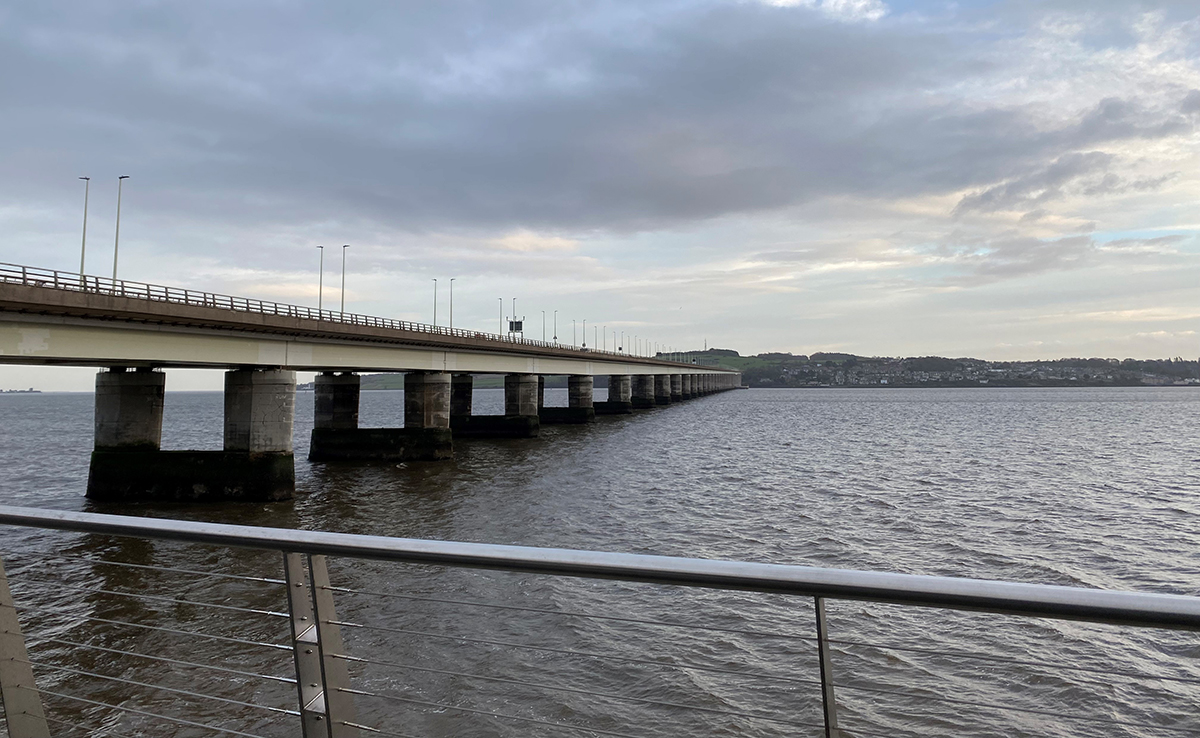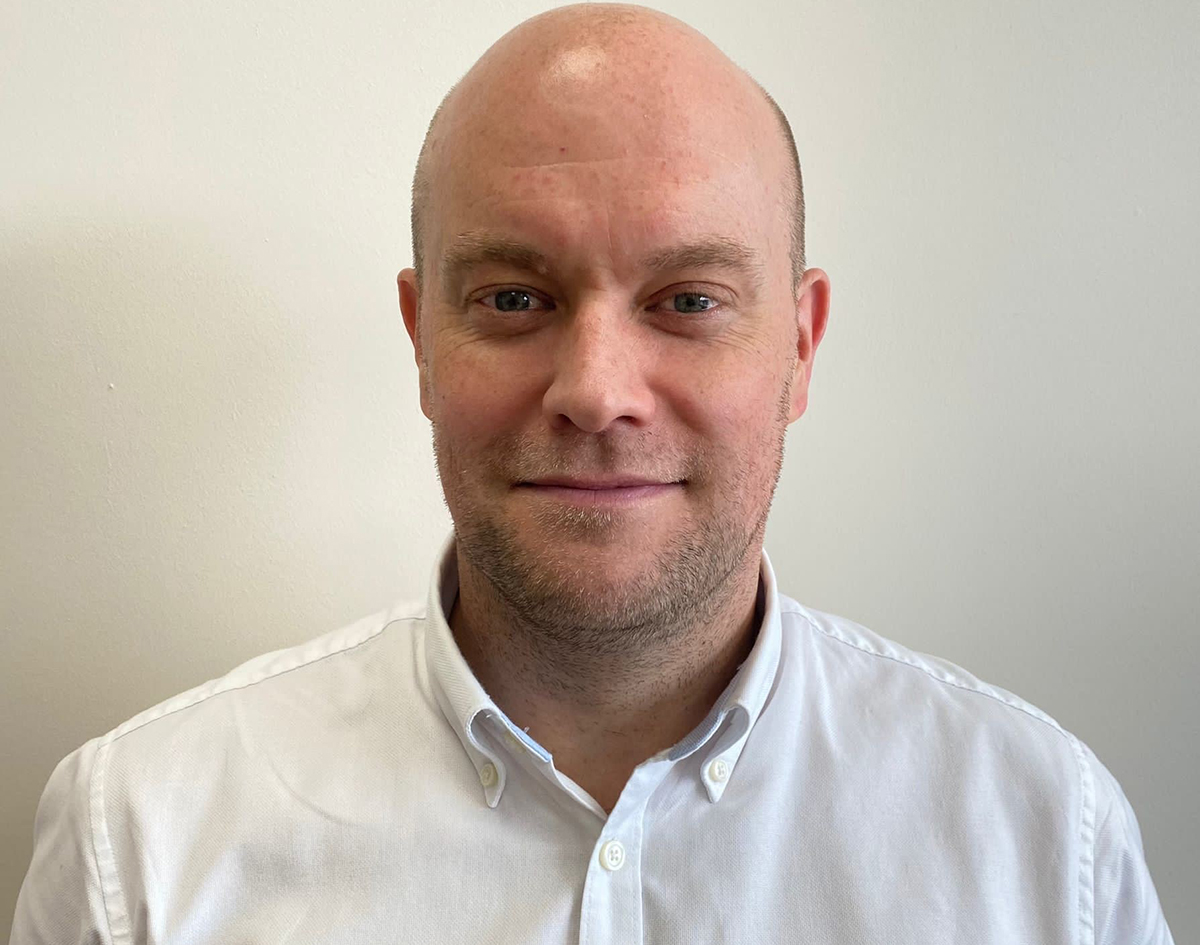
THE sales director of TWM Traffic Control Systems has revealed that the company is experiencing ‘real benefits’ from its extensive dealings with the Scottish market due to the country’s demand for innovative new technologies.
Chris Rayner told Project Scotland that the Winsford-based firm, which is part of The Pilot Group and specialises in traffic control systems and smart city solutions, deals with the ‘majority’ of local authorities and road network operators in Scotland to help them create safer transport infrastructure.
Currently, the business is working on a two-year contract on the Tay Road Bridge Joint Board to maintain and improve ITS infrastructure. The deal, which includes an optional one-year extension, came about when the crossing’s 2G system became redundant.
TWM will upgrade the bridge’s sign communications to a 4G network, as well as integrate them into the crossing’s control system. The business will play a key role in keeping the structure as operational as possible all year-round, with the bridge acting as a crucial passage for the transportation of goods around Scotland.
“If there are really adverse weather conditions, there’s limitations on what vehicles Tay Road Bridge can be used for,” Chris explained, before telling of how quickly the new system update surrounding signage. “We need to be able to advise people early enough so that they can take alternative measures, so it’s not a problem to them when it’s too late and once they’re at the bridge.”
The firm has confidence in its own technology – which includes variable message signage, air quality, electronic road safety equipment, controlled by central management systems – to both support older infrastructure that can be refurbed to cater to modern life and also help extend the lifespan of structures.
“For all the bad that Covid brought to the world, I think one positive which can be taken out of it is that it’s switched people’s mindsets towards technology,” Chris said, highlighting that the suggestion of a Teams call rather a telephone chat would’ve been scoffed at pre-Covid. “People know they’ve got to embrace technologies and are naturally starting to see the benefits of that.”

He explained that local authorities in Scotland have been particularly open to utilising technology, with TWM noticing a ‘real appetite’ from councils to achieve their various ambitions – be it infrastructure builds or net zero aspirations.
The firm’s own cloud-based CMS system has been of particular interest, with Chris explaining that it allows local authorities to no longer have to physically send a team out to signages to change settings, collect data or understand the assets current status. Instead, TWM has developed a portal-based system which enables all assets to be controlled and monitored via a desktop.
“They’ve been really open to it,” he added. “They see the benefits of taking it online and being able to have the visibility. We’re moving into a data-driven world, and if they don’t have that data they can’t manage it (infrastructure). The other part which they seem to like about the technology is that if they can get that data, they then have the tools and ability to take that information into a case study and a business case to look for funding to be able to improve their network.”
Data that can be collected through the systems range from average vehicle speeds and vehicles counts, through to flood and air quality as well as noise pollution. This, alongside the primary use of the signage and technology, can not only allow ageing infrastructure to continue being used, but also more closely monitored and used to help shape the area around it.
One example of this is recent work by TWM with the City of Edinburgh and Aberdeenshire Councils to create school safe zones, which built on previous work involving the two local authorities to provide additional safety systems onto access roads and crossings near schools which eventually evolved into the creation of streets entirely closed to traffic during certain hours.
The clear signage, featuring LED lighting and clear instructions, ensures drivers know streets are closed off during certain hours – meaning parents and children can have peace of mind, without major infrastructure changes being required to create safer routes.
Similarly, in Aberdeenshire the firm was called upon to increase the safety around a crossing which Chris said had received a lot of reports of cars having near misses with pedestrians. Drivers had stated they did not see the crossing when questioned. TWM utilised its DayBright solution, which is an enhanced LED Belisha Beacon halo with illuminated runners. Chris explained that it makes drivers aware ‘well in advance’, with the company describing it as having ‘exceptional’ daylight illumination and retrofittable not requiring any civil/excavation works.
TWM has a team culture to engage with the local communities near sites they are working on, so as to ensure the technology being installed doesn’t just become ‘part of the furniture’ and its influence is instead understood by locals.
“Our mission is about protecting and educating the general public and whether that be on educating them on technology or where we’re trying to head from a net zero point of view, it’s all about making a difference going forward,” Chris added. “There’s a lot of change going on in the industry and we want to be at the forefront of that and be seen to be making a difference for people’s futures – little things that we all do now will be massive for the future.”
Moving forward, Chris said that the firm has aspirations to continue building on its portfolio of work in Scotland. TWM sees the potential of the Scottish market and is looking to develop further relationships across the country.
“The belief (that it’s a closed market) couldn’t be further from the truth,” he added. “Not only is Scotland a thriving market, but it is also very open to innovation and being leaders in the ambitions it promotes (such as net zero).
“Our technical director, Stewart Hill, and BDM, Robert Scrafton, are from Glasgow and Fife respectively, so they have a natural affinity to assisting improvements in their homeland. For me personally, I’m Newcastle-based and I love going north of the border because you always get a warm welcome and people are genuinely interested in what we’re trying to do.”









